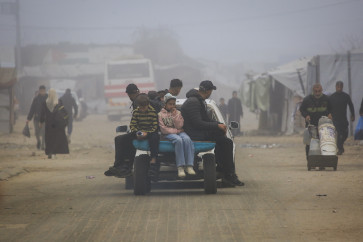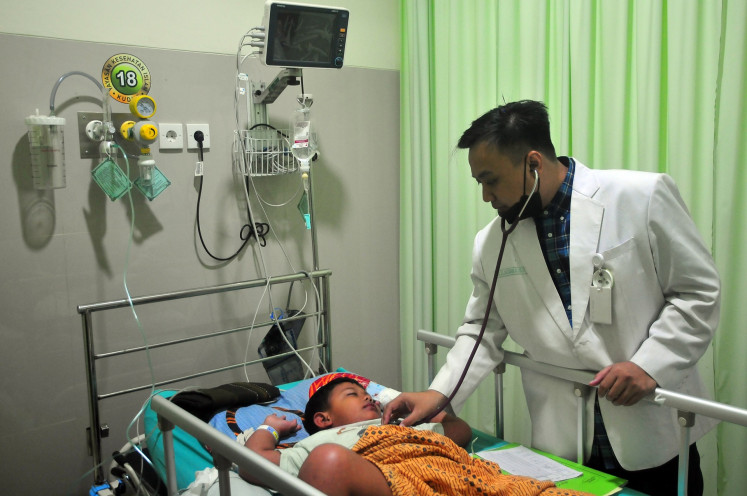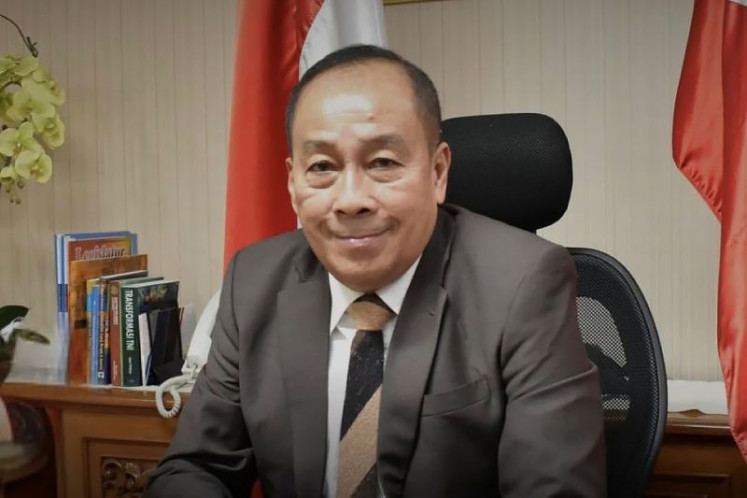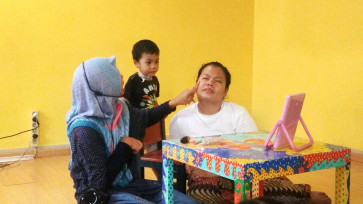Popular Reads
Top Results
Can't find what you're looking for?
View all search resultsPopular Reads
Top Results
Can't find what you're looking for?
View all search resultsInclusive education in ASEAN: Fostering belonging for students with disabilities
Many children with disabilities do not attend school at all and are vulnerable to entering the informal job market, child marriage and experiencing exploitation, violence and poverty.
Change text size
Gift Premium Articles
to Anyone
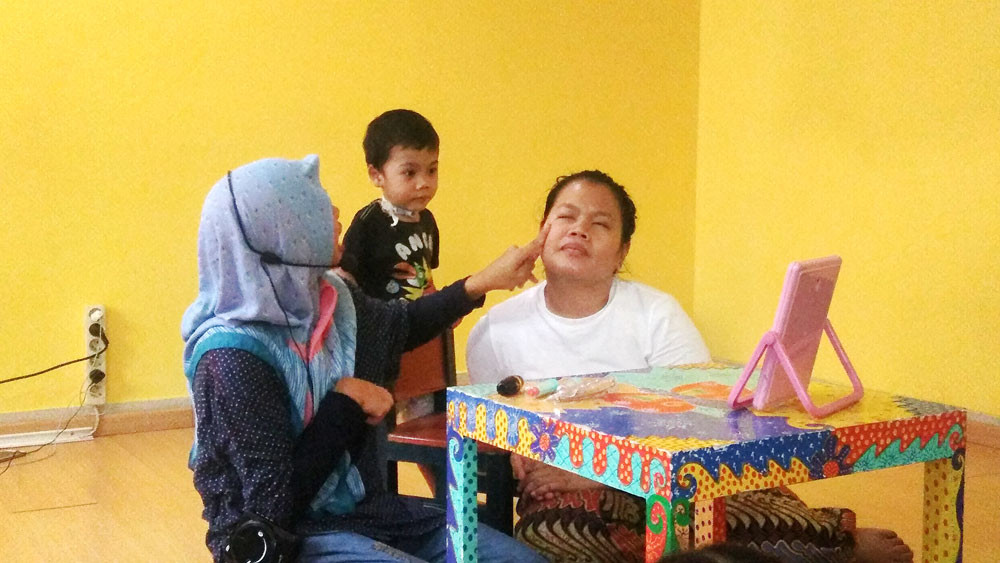 Against all odds: Aisyah Cahyu Cintya (left), who is a disability activist and has cerebral palsy, puts makeup on a woman at Rumah Harapan Indonesia. She paid a visit to motivate children and parents in the shelter to stay optimistic despite their disabilities and illnesses.
(The Jakarta Post/Vela Andapita )
Against all odds: Aisyah Cahyu Cintya (left), who is a disability activist and has cerebral palsy, puts makeup on a woman at Rumah Harapan Indonesia. She paid a visit to motivate children and parents in the shelter to stay optimistic despite their disabilities and illnesses.
(The Jakarta Post/Vela Andapita )
T
his is the decade of change. The COVID-19 pandemic, recent geopolitical conflicts and climate change have pushed us to think about the greatest challenges of our time and reassess how we do things. The education system needs a hard look, too.
While the term “inclusion” has surfaced as a mega-trend across the public and private sectors in the last couple of years, it is no stranger to the world of education. What is new, however, is the realization of governments and civil society that inclusive education involves more than simply placing a student with a disability in the classroom. Many education systems claim to be inclusive but instead follow either segregated or integrated models, missing the mark on meaningful inclusion.
Inclusive education requires systemic change, change that stems from a change in mindsets and skill sets to foster a sense of belonging for all students in the classroom. Systemic change requires principles of inclusion, such as whole-system inclusion, a learning-friendly environment, curriculum adaptation to student needs, differential learning and universal design for learning (UDL), among others.
The United Nations Children's Fund (UNICEF) 2020 report Education for Every Ability offers entry points for practical improvements in each of these domains.
Students with disabilities who are included in school are healthier, can apply their skills to other settings, look forward to going to school and are more likely to be civically engaged and employed later in life. Students without disabilities have much to gain too, including broadening their perspective-taking skills, opportunities to collaborate in creative ways and understanding firsthand the process of inclusive community building. These are just some of the reasons we need to make a change now.
UNICEF reports suggest that are about 43.1 million children (0-18 years of age) with physical and/or intellectual disabilities in East Asia and the Pacific. Many of these children do not attend school at all and are vulnerable to entering the informal job market, child marriage and experiencing exploitation, violence and poverty.
While school closures from the COVID-19 pandemic have caused devastating effects on student learning, their closures have offered us an opportunity to think about meaningful inclusion in schools. School closures have affected a staggering 140 million students in Southeast Asia and 260 million students in East Asia (UNICEF, 2021).




